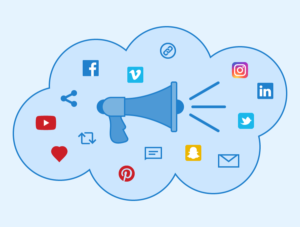
Event marketing involves direct interaction between businesses and consumers at various gatherings such as trade exhibitions, conferences, and seminars. Each event has its own unique audience, content, and culture, making it crucial for event marketers to stay ahead of the game.
The success of an event relies heavily on its marketing efforts. Without careful attention to event marketing, the chances of low attendance or lackluster foot traffic are significantly higher. This holds true for both offline and online events alike.
In this blog post, we will explore seven essential event marketing tips for beginners to create an unforgettable event.
Top Event Marketing Tips
It’s important to determine the most effective marketing strategies for your event once you have identified your target audience. Consider implementing these event marketing tips and techniques to expand event reach:
1. Develop an Engaging Event Page
Your event page or website serves as the central hub for all promotional activities. If you haven’t already, create a dedicated website for your event that clearly highlights the subject, time, location, and target audience. Include different attendee categories and their corresponding benefits. Make the content scannable and concise.
To build anticipation and attract new attendees, curate valuable content such as videos, photos, or even merchandise that participants can use to remember the event. Additionally, showcase the event speakers by including their photos, resumes, and video interviews. These can be easily created using platforms like Skype or Google Hangouts. Encourage a call to action and prominently display a registration button.
2. Harness the Power of Social Media
Social media has revolutionized the event planning industry, offering a vast and specialized reach for event promotion. Understand your audience’s needs and create a message that resonates with their pain points to boost engagement. Build trust with your target audience by sharing exciting and valuable information through social media platforms.

While organic traffic has its limitations, paid advertisements on social media sites like Facebook and Instagram can help you reach a broader audience and direct them to your sales page. Design advertisements that create a fear of missing out (FOMO) to generate a sense of scarcity and encourage ticket sales.
3. Leverage the Potential of Email Marketing
Email marketing is still a powerful tool that should not be underestimated. It boasts the highest conversion rate among digital channels. Incorporate email campaigns as a crucial component of your event marketing plan. Send out emails to your mailing list subscribers to create awareness and generate excitement about the event.
Promotional emails are a fantastic way to entice people to sign up for your event. Tease the highlights and featured speakers in these emails to generate interest. Consider offering early bird deals and allowing targeted subscribers to make early reservations. This will make them feel valued and more likely to attend.
4. Utilize Event Hashtags
Hashtags play a crucial role in connecting and grouping public messages on social media platforms. Choose a unique and concise event hashtag that represents your event. Use this hashtag consistently in your tweets and blog posts to increase visibility and engagement.
5. Optimize Your Content for SEO
Understanding the search terms and keywords people use when looking for local events is key to optimizing your content. Focus on creating value-driven content that aligns with those keywords. You can use free tools like the Google search bar and Wikipedia to find relevant keywords, or opt for more reliable paid tools like SeMrush and Ahrefs.
6. Engage Your Attendees as Content Creators
Tap into the marketing potential of your past event attendees. Encourage them to share images, videos, and personal experiences from the previous event. Encourage the use of the event hashtag to amplify their content. As an incentive, consider offering rewards or discounted tickets to the upcoming event.
7. Measure and Improve Your Performance
Establish clear metrics to assess the success of your event, such as attendee numbers, networking opportunities, and social media engagement. Collect data using various methods and create a comprehensive report after the event. This report can be shared with your team, stakeholders, and even used for future marketing efforts. Learn from the insights gained to enhance your next event.
Conclusion
Effective event marketing requires careful planning and execution. By considering your event goals, content marketing, promotional strategies, community engagement, and technology utilization, you can create a powerful marketing strategy for your event.
Demonstrate that you value your attendees’ wants and objectives, and go the extra mile to provide them with an exceptional experience. Implement these marketing techniques to ensure a successful and memorable event. Start preparing for your upcoming event now and make it a resounding success.
